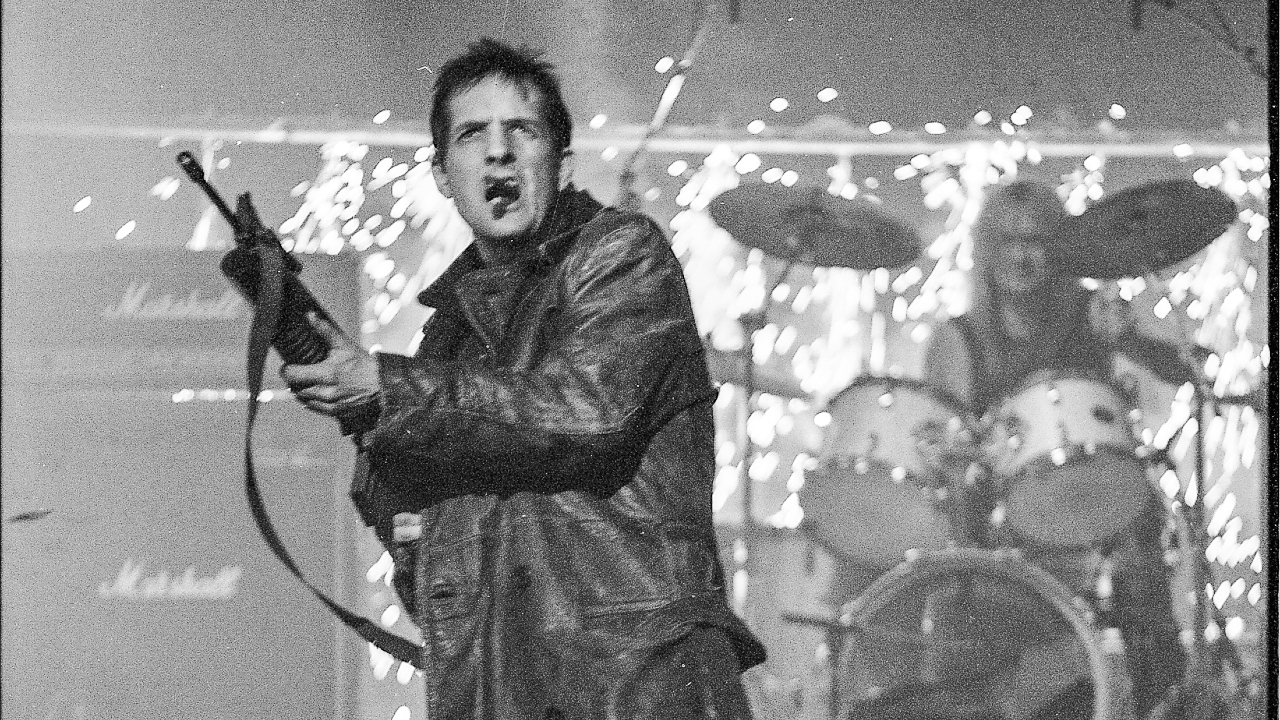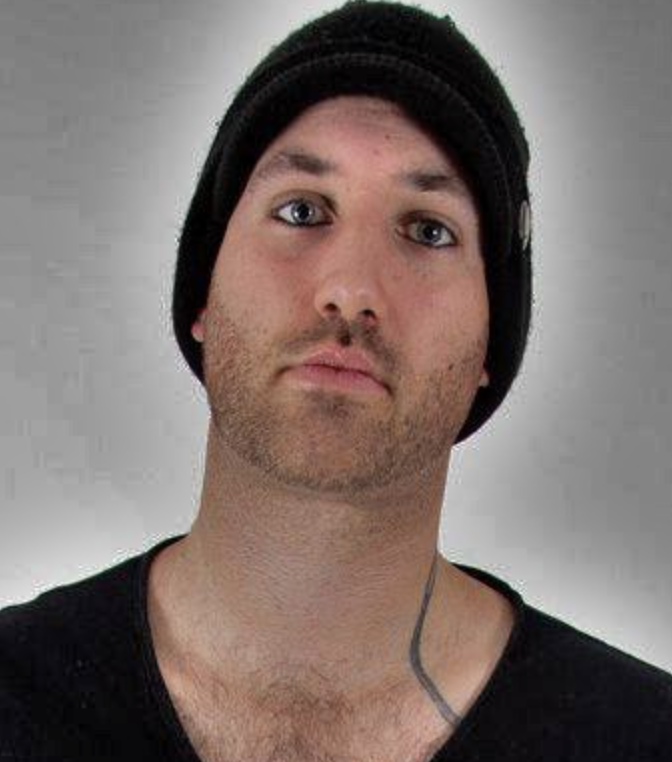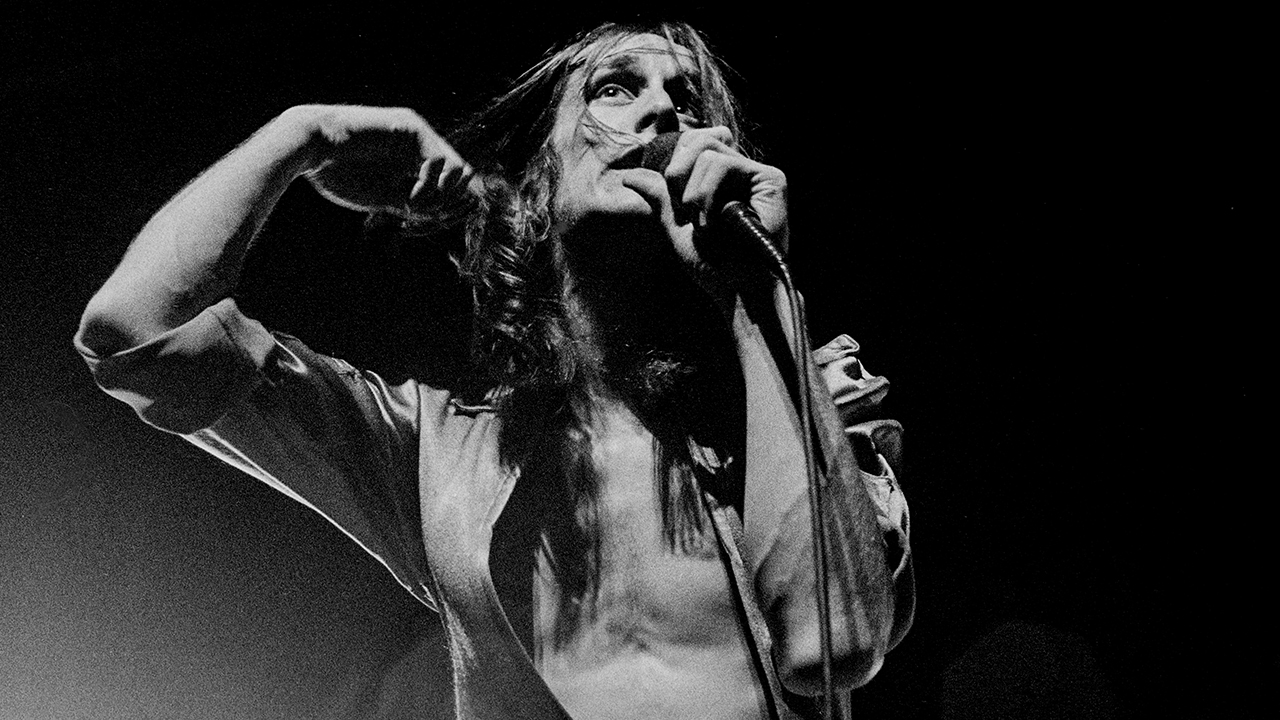Grindcore, machine guns and dead animals: inside The KLF and Extreme Noise Terror's infamous 1992 Brits performance
30 years after it aired, we remember the most notorious performance in UK awards history

Select the newsletters you’d like to receive. Then, add your email to sign up.
You are now subscribed
Your newsletter sign-up was successful
Want to add more newsletters?

Every Friday
Louder
Louder’s weekly newsletter is jam-packed with the team’s personal highlights from the last seven days, including features, breaking news, reviews and tons of juicy exclusives from the world of alternative music.

Every Friday
Classic Rock
The Classic Rock newsletter is an essential read for the discerning rock fan. Every week we bring you the news, reviews and the very best features and interviews from our extensive archive. Written by rock fans for rock fans.

Every Friday
Metal Hammer
For the last four decades Metal Hammer has been the world’s greatest metal magazine. Created by metalheads for metalheads, ‘Hammer takes you behind the scenes, closer to the action, and nearer to the bands that you love the most.

Every Friday
Prog
The Prog newsletter brings you the very best of Prog Magazine and our website, every Friday. We'll deliver you the very latest news from the Prog universe, informative features and archive material from Prog’s impressive vault.
Back in February, the UK’s biggest annual music awards ceremony finally gave metal fans a little something to get excited about. The Brit Awards have famously ignored almost any form of heavy music over the years, so it was a shock to see one of the world’s biggest pop stars, Ed Sheeran, open the show alongside Sheffield deathcore-turned-alt-rockers Bring Me the Horizon. Towards the end of the performance, BMTH frontman Oli Sykes let out a trademark scream which was seen by many as a symbolic victory for metal on one of TV's grandest stages.
“After about three minutes of lazy research on Wikipedia, I’m pretty sure Oli Sykes is the first person to EVER (!!) scream on the Brits stage...” tweeted Holding Absence frontman Lucas Woodland in the aftermath of the show, before he and many others went on to wax lyrical about how groundbreaking a moment this seemingly was.
Woodland might have wanted to spend another couple of minutes on Wikipedia: as cool as Bring Me The Horizon's appearance was, it was nowhere near as extreme a show of brutality as one of the most infamously provocative performances in BRITs history. 30 years prior, the bizarre union of a pair of avant garde, electronic antagonists and an underground, crusty grindcore band scared the shit out of middle England.
Bill Drummond was already established in the music industry by the time he decided to form The KLF with his friend Jimmy Cauty, having founded Zoo Records and managed the likes of Echo and the Bunnymen and The Teardrop Explodes in the 80s. But by 1986, he was working as an A&R man at record label WEA, and was fatigued and frustrated. “I was just so bored of the traditional pop song structure,” he says in 2021 documentary Who Killed The KLF? So, on the first day of 1987, he quit his job and decided to make a hip-hop record. He called Cauty, who was playing guitar in a Pete Waterman-produced pop band who were called Amazing, but who Cauty described as “crap”. The pair started to create together under the name The Justified Ancients of Mu Mu, then later, The Timelords.
During their early years Drummond and Cauty became notorious in the music scene for their outrageous antics: they were once sued by ABBA for using an uncleared sample of Dancing Queen, proceeding to press the record regardless and then throwing all of the copies into the sea; they scored a 1988 UK number one single with the novelty, Dr. Who theme-sampling song Doctorin’ the Tardis (“we went for the lowest common denominator,” says Drummond of the song. “A couple of days in we realised it was terrible, a few days after that we realised it was a number one hit.”); they wrote a book called The Manual (How to Have a Number One the Easy Way) that cynically detailed exactly how to make a number one pop single. “We wanted to dump the whole history of pop music and start again.” recalls Drummond.
In 1988, they renamed themselves once again, this time as The KLF, and with the name change came a swerve in musical direction. As acid house began to dominate the UK underground dance scene, so The KLF ditched the novelty hit-making and hip-hop influences and began to create a more “pure house” sound.
It proved to be a masterstroke, as they became one of the successful acts of the era; in 1991 they released five singles, all of which made the UK top 10, including another number one with 3 a.m. Eternal, and sold an eye-watering 6 million records worldwide.
The latest news, features and interviews direct to your inbox, from the global home of alternative music.
With success like that they were impossible to ignore, and were nominated alongside the rather cuddlier likes of Simply Red, Dire Straits, James, Pet Shop Boys and Queen for the coveted Best Band award at the 1992 BRITs.
While all this was going on, Extreme Noise Terror had been going about their business with slightly less fanfare. The Ipswich-based quintet had formed in 1985, and were one of a number of bands in the UK underground that had taken influences from Discharge, Motörhead, G.B.H. and early thrash and helped to turn it into grindcore. The sound was all warp-speed riffing, crusty, crude production and with belched, bellowed and incoherent vocals, it was about as far from mainstream pop as music could be.
Hugely influential BBC Radio 1 DJ John Peel was one of the new style's most avid champions, inviting the likes of Napalm Death, Doom, Bolt Thrower and more to come on his show for sessions during the late 80s. Drummond apparently heard ENT on Peel’s show whilst in the bath, and invited them to re-record 3 a.m. Eternal for use on the Christmas episode of Top of the Pops. The BBC immediately refused to air the song, so plans for the two groups to perform together were shelved...until The Brits came calling and asked The KLF to play live to open that year's ceremony.
“They had wanted to do rock versions of their songs with Motörhead, but something fell through,” shrugged Extreme Noise Terror vocalist Dean Jones to NME at the time, “so he rang us.”
Suddenly, Extreme Noise Terror were rocking up to the most prestigious night in the UK’s music calendar, in amongst the kind of company they were far from used to - “It’s Hammersmith Odeon, I’d never been there before,” marvels former ENT drummer Tony Dickens on What Killed The KLF? "The stage was bigger than most venues I’d played.”
But bringing in Extreme Noise Terror was just one component of The KLF’s plan; Drummond and Cauty were intent on doing something so shocking, so abhorrent, that they would never be forgiven for it. Firstly, there were plans for Drummond to cut his hand off onstage and toss it into the audience, then the idea of a real-life sacrificial lamb was mooted.
"The idea was that, two thirds of the way through the song, this altar would appear with the sheep on,” Drummond told NME. “We'd bought the meat cleavers, the knives, the tablecloth, got everything. But of course, in the end, Extreme Noise Terror made it blatantly known that they were totally against the idea."
“We turned up in this van, and Bill Drummond has got a load of buckets of pig blood in the back of it,” remembers Dickens. “He was going to throw it all over the audience. He was going, ‘Right, we’re going to get this sheep, we’re going to chop it up onstage and then throw it into the audience.’ Thing is, we’re all vegetarian, see, so it wouldn’t have gone down very well with our audience.”
Although that didn’t happen, what we got was surprising enough for mainstream TV: Drummond, on crutches and in a leather trench coat, bawling “This is television freedom!” before he, Cauty and Extreme Noise Terror blast through a barely recognisable, crust punk version of 3 a.m. Eternal.
The footage still looks as utterly chaotic today as it would have done three decades ago; even those onstage were taken aback by the pure mania of the performance.
“They didn’t tell me about all the pyrotechnics behind me,” laughs Dickens. “I nearly caught fire.” Cauty, meanwhile, was victim of a minor technical mishap that scuppered his rockstar dreams.
“I’ve always had this rockstar fantasy, ever since I was young,” Cauty says. “`That I’d have this massive guitar solo, and at Hammersmith Odeon I’m going to do it at last. I get up to the front of the stage and go ‘Vrammmm’, and my bloody lead gets pulled out of my guitar. I’ve only got 20 seconds to do the solo, and I spend the whole time trying to find the end of the lead to put it back in. That was the last thing I did in the music business, really.”
As feedback and pyro fill the stage at the song's climax, Drummond has one last middle finger to give before he exits.
“I get a machine gun,” he snorts. “Smuggle that in! I machine gun the audience with blanks and walk away and just go, ‘Fuck you!’, and that was our exit from the music industry.”
At the end of the song, the band’s legendary publicist, Scott Piering, announced that “The KLF have now left the music business.”
NME rated the performance glowingly, describing what they saw as “hardcore punk thrash through a disco Techno hit played by crusties. All bases covered, brilliantly.”
Later that evening, following slightly more sedate performances by Seal and Beverly Craven, The KLF would win the award for Best Group... although, much to their disgust, they’d be forced to share it with Simply Red. The band didn’t even stay to collect their award, instead sending a motorbike courier to pick it up for them, before dumping a dead sheep on the steps of the awards afterparty with a note reading: “I died for you, bon appetite” tied to it.
And that really was the end, musically speaking, for The KLF. In the aftermath of the ceremony they split, releasing a statement that read: “We have been following a wild and wounded, glum and glorious, shit but shining path these past five years. The last two of which has [sic] led us up onto the commercial high ground – we are at a point where the path is about to take a sharp turn from these sunny uplands down into a netherworld of we know not what. For the foreseeable future there will be no further record releases from The Justified Ancients of Mu Mu, The Timelords, The KLF and any other past, present and future name attached to our activities. As of now all our past releases are deleted.”
From that moment, The KLF were wiped from existence; all albums were discontinued, there were no tours, no reunions, their songs were barred from use on film, adverts or television and it took until New Year’s Day 2021 before their music was made available on streaming services. Their cultural imprint erased, and totally all by themselves.
Cauty buried his Brit near Stonehenge - “it was making me feel sick,” he said. “It was a symbolic way of finishing it all off for me. It’s still there now, there was this big archeological dig there a while back and I was thinking, ‘Oh it would be great if they found it', but they didn’t.”
A few years later, he and Drummond would take that idea to its (il)logical conclusion and burn a million pounds in cash, but that’s another story for another time.
“You know, when you’re sat in the pub and you get drunk, and you have a really stupid, crazy idea,” Dickens smiles. “Then the next morning you wake up and you go ‘pft!’, well they carried it through.”
It’s been thirty years and, sorry Ed, sorry BMTH, but there really has never been anything that comes close in terms of a more shocking, extreme, anarchic or glorious example of heavy music at the UK’s big music night out since. And, in all likelihood, there never will be.
Who Killed The KLF? is available to watch now on Sky and Amazon Prime

Stephen joined the Louder team as a co-host of the Metal Hammer Podcast in late 2011, eventually becoming a regular contributor to the magazine. He has since written hundreds of articles for Metal Hammer, Classic Rock and Louder, specialising in punk, hardcore and 90s metal. He also presents the Trve. Cvlt. Pop! podcast with Gaz Jones and makes regular appearances on the Bangers And Most podcast.
